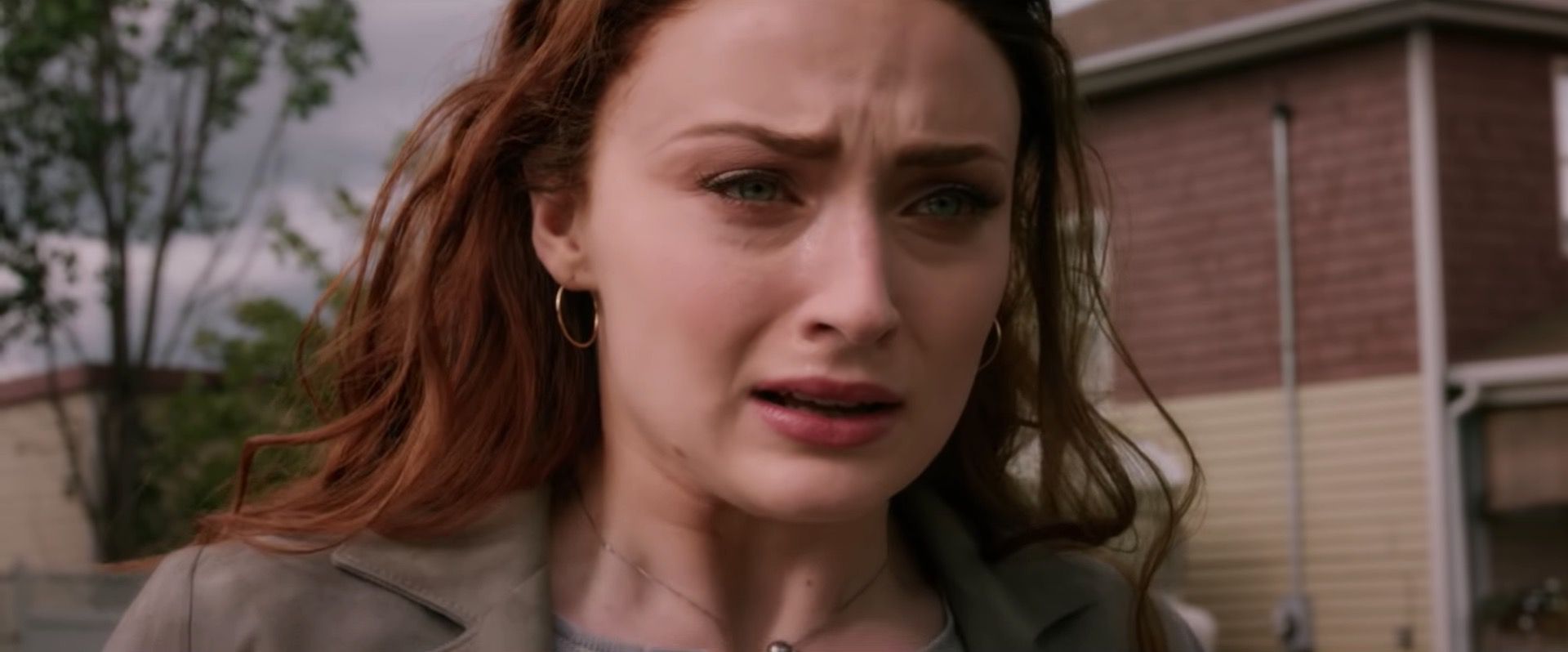
It is our experiences and environment that help mold who we are. If our pasts are painful and full of strife, we often carry that forward with us our entire lives, complicating our growth and clouding any path forward. The exploration of the role of trauma in a person’s development is the central question at work in Dark Phoenix.
Dark Phoenix finds the X-Men in good standing after a previously tumultuous existence on Earth. Professor Charles Xavier (James McAvoy) has successfully gained the trust of mankind with his team of super-powered mutants now called upon to perform heroics in defense of the planet. It is during a rescue mission of stranded astronauts in space that trouble surfaces after one of the Professor’s students Jean Grey (Sophie Turner) is injured following an encounter with a mysterious cosmic force. Already wrestling with the demons of her past, Jean finds herself imbued with additional powers she cannot control. Professor X and the X-Men must scramble to save Jean from herself before her other pursuers, including long-time nemesis Magneto (Michael Fassbender) and an alien with shadowy intentions (Jessica Chastain) find Jean and use her for their own means.
Narratively, Dark Phoenix is the confluence of a multitude of themes, the most prominent of which are the exploration of the effects of trauma and guilt, along with the importance of family. As the film’s protagonist, Jean Grey’s lingering trauma from the childhood loss of her parents and collapse of her family, and the resulting feelings of isolation, powers the Dark Phoenix’s plot and serves as the main character examination. Jean’s troubled past never really leaves her and the fact that it always remains in her subconscious prevents her from ever really reaching her full potential or experiencing any peace at all. Coming to grips with our painful pasts is an issue that is quickly rising in importance in our society and the struggles we see Jean have in the film feel very topical to our current moment.
Family is also a driving force in Dark Phoenix’s narrative, with the death of Jean’s parents factoring heavily into her lifelong struggles. Professor Xavier and the rest of the X-Men have become a surrogate family for Jean, which is why the revelations that unfurl throughout the film about their true place in her life, particularly the Professor’s, only serve to amplify her pain and make her trauma more pronounced. The world which mutants inhabit have forced many of them to adopt surrogate families after being rejected by their families of birth and society in general. As Charles de Lint wrote in Moonlight and Vines:
“The family we choose for ourselves is more important than the one we were born into; that people have to earn our respect and trust, not have it handed to them simply because of genetics.”
These self chosen ties that bind as described above can also come with pain that is stronger than what we may typically feel toward genetic family should a falling out or fight ever occur; after all, these are people you chose to allow access to your life, not ones who are there by accident of birth. We see this stronger tie, and therein emotion, in both its negative and positive connotation in Dark Phoenix through the relationships between Professor Xavier, Hank “Beast” McCoy (Nicholas Hoult), Raven (Jennifer Lawrence), and Magneto. The intertwining relationships are put to the test in a flurry of grief, betrayal, and retribution as the longtime friends and adversaries must to come to grips with where they’ve been and who they’ve grown to become.
Dark Phoenix sets aside the usual bombast of the superhero, comic book movie genre in favor of an intimate character study serving as a meditation on how trauma can affect the human condition and the need for strong support systems to assist in navigating the path toward healing. The role that family bonds play in the strengthening, or dismantling, of our lives is also a focus in the story that is handled well. Sophie Turner does a good job as the titular character, deftly portraying a confused young woman in crisis looking for belonging. The film’s secondary alien villains do feel a bit shoehorned in and unnecessary, as if they are present just to provide some blockbuster cannon fodder and physical opponents in a film that was already eschewing big action set pieces in favor of drama and exposition. The need to provide foes for the heroes to combat is understandable, but their inclusion here sticks out as something that feels like it was inserted because it had to be rather than because it served the story. Still, Dark Phoenix is a welcome respite for theaters that have been feeling bloated and inundated with bland, beat ’em ups and tries to provide audiences with an alternative lens through which comic book superheroes are portrayed. But with the future that is already being set in motion for the X-Men franchise, the film feels like the last chance for creativity in a genre that is calling out for it.
Image: 20th Century Fox

